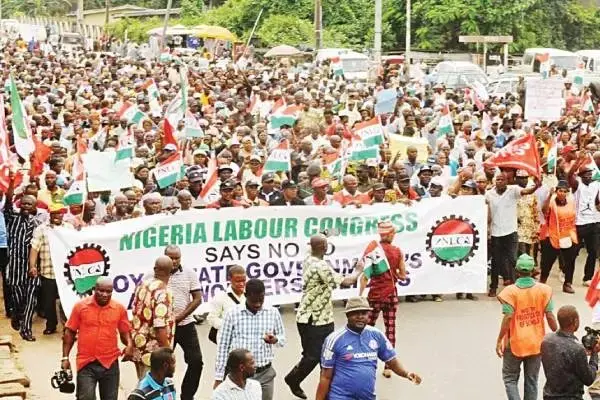Today, Nigeria is deliberating on what should be the minimum wage for workers in the country following the economic hardship biting the nation.
The Federal Government is proposing ₦62,000 per month while Labour (workers) is proposing ₦250,000 monthly.
Is the proposal by both parties fair with the current economic situation of the country?
Compared to other nations, Nigerian workers are one of the least paid, and things got worse when President Bola Tinubu removed subsidy from fuel (petrol), floated the dollar and increased electricity tariffs.
Is there any value in what the government is proposing with respect to the reality of things? Well, let’s look at the value of the minimum wage from 1981 to 2024.
1981: First National Minimum Wage became ₦125 per month; petrol was 20kobo per litre and US$1 = 60kobo.
1990: Minimum Wage was ₦250; petrol was ₦20 per litre; a 50kg bag of rice was ₦400 and US$1 = ₦7.40k.
1999: Minimum Wage was ₦3,500; petrol was still ₦20 per litre; a 50kg bag of rice was ₦2,500 and US$1 = ₦22.
2000: New Minimum Wage became ₦5,500 and ₦7,500 for different categories of federal workers, petrol was ₦30; a 50kg bag of rice was still ₦2,500 and US$1 = ₦86.
2011: New National Minimum Wage became ₦18,000; petrol was ₦65; a 50kg bag of rice was ₦12,000 and US$1 = ₦165.
2019: New National Minimum Wage became N30,000 monthly; petrol was ₦145; a 50kg bag of rice was ₦19,500 and US$1 = ₦305.
2024: Ongoing discussions about a New Minimum wage; Petrol is ₦720 (officially ₦620) and a 50kg bag of rice is ₦85,000 and US$1 = ₦1,480.
The minimum wage of 1981 (₦125) was roughly US$208. At today’s exchange rate of US$1 = ₦1,480, that ₦125 is equivalent to ₦307,840. So, the minimum wage in 1981 was over 10 times bigger than the current minimum wage of ₦30,000 which is the equivalent of about US$20.
READ ALSO:
- Women protest n@ked over arrest, torture of youth leader by Cross River Govt
- JUST IN: Air Force aircraft crashes in Kaduna
- Poor regulatory frameworks killing CSOs in Nigeria – Global Rights
The Nigerian worker has to eat, drink, have shelter, clothe self, transport self, settle bills/subscribe for services (DSTV, GOTV, MTN, Glo, Airtel, 9mobile, etc), access healthcare, provide for dependants (feeding, shelter, clothing, school fees, healthcare, etc.), etc.
The Nigerian political officer (elected or appointed) takes life for granted because he scoops from the state treasury like from his domestic soup pot.
What can be a Nigerian worker’s reasonable and sustainable minimum living wage, given Nigeria’s economic situation today?





